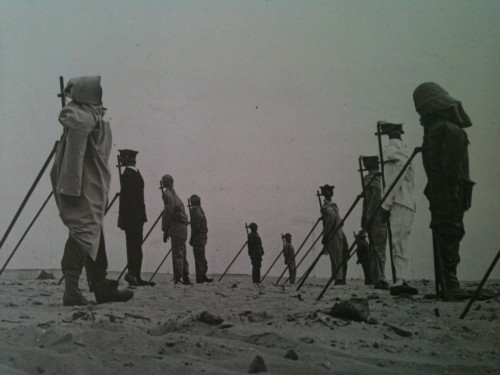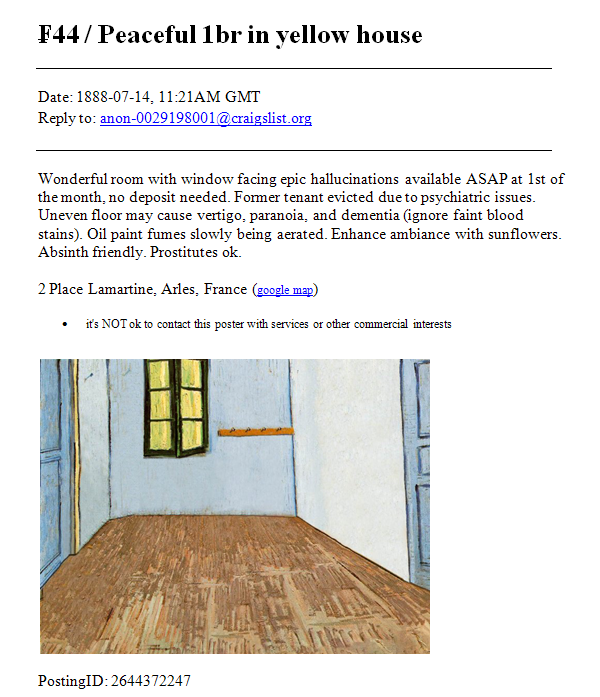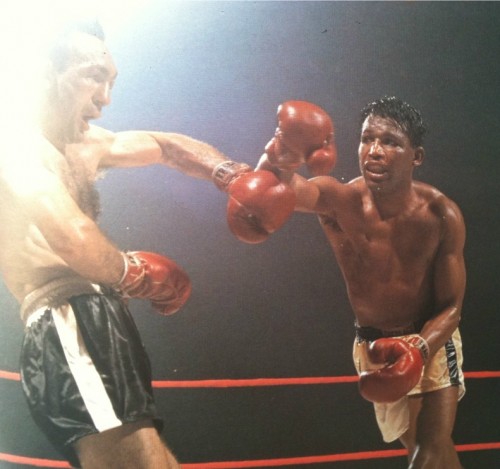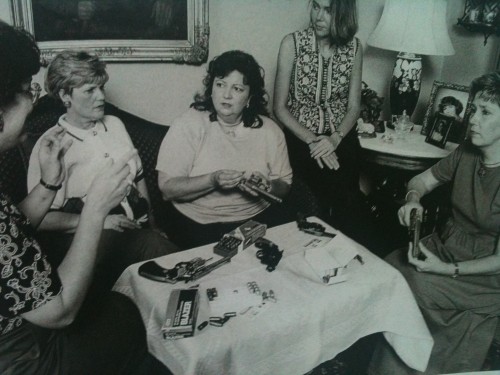How to End a Mystery
“Oh,” said the warden. “I see.” Then through the phone. “Let the fifth man go. He’s all right.”
LOOK AT WHAT USED TO BE YOUR ROSES. –Shirley Jackson
Blue Murder had never been shod. –Wilbur Daniel Steele
I often wish I had. Maybe she left me a note. –James M. Cain
And in the south, always. –Dennis Lehane
They made little splashes and the seagulls rose off the water and swooped at the splashes. –Raymond Chandler
“Well,” said the inspector, “if you are so sure, I’m inclined to agree. You’ve never made a mistake.”
But why kill him, Warren? What for? –Henry Slesar
“Gave her a good look at my face. My face is important to me.” –Joyce Carol Oates
The sheriff threw it open, and upon the floor, sprawling in a smear of blood, lay Simon Kilrail, with a dueling pistol in his hand. –Melville Davidson Post
Mr. Osterweil had gone up to the hundred-and-second floor and jumped from the observation deck. –Jerome Weidman
Comb it wet or dry? –Ring Lardner
Ellery grinned and began to chop down the cherry tree. -Ellery Queen
“You ought to have known I’d do it!” My voice sounded harsh and savage and like a stranger’s in my ears. “Didn’t I steal a crutch from a cripple?”
In the In
Last week, I had this awesome conversation with a grad student about theory. And he was like, Have you read this guy?, and I was like, Who?!
And so I come to my problem: What is going on in theory these days?
When you’re in school – in school like a student – you get this fab readings lists, from professors, from friends, from other students. You’re always in conversation, whether in the classroom or out of it. Either way, ideas are just around you. All you have to do is listen.
DAVID MITCHELL’S SOUL, AND OTHER VERBS
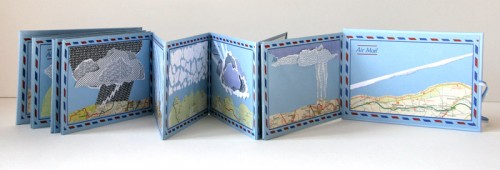 March of this year we were in the desert and, like Stephen Crane’s famous creature, we were bestial and squatting; maybe we were naked as well. It’s possible—we were on one drug or another, and memory is strange. I did not hold my heart in my hands but a shotgun. We had bought a box of old records from a flea market on the way down and were taking turns tossing them up in the air and making it rain black diamonds, fragments of song titles and run times. We had liquor, and music, and all five of David Mitchell’s novels—Ghostwritten, number9dream, Cloud Atlas, Black Swan Green, and The Thousand Autumns of Jacob de Zoet. I brought along the audiobook versions as well, as we were staying the night and planned on being too insensate before long to do any actual reading.
March of this year we were in the desert and, like Stephen Crane’s famous creature, we were bestial and squatting; maybe we were naked as well. It’s possible—we were on one drug or another, and memory is strange. I did not hold my heart in my hands but a shotgun. We had bought a box of old records from a flea market on the way down and were taking turns tossing them up in the air and making it rain black diamonds, fragments of song titles and run times. We had liquor, and music, and all five of David Mitchell’s novels—Ghostwritten, number9dream, Cloud Atlas, Black Swan Green, and The Thousand Autumns of Jacob de Zoet. I brought along the audiobook versions as well, as we were staying the night and planned on being too insensate before long to do any actual reading.
The Orange Bears by Kenneth Patchen
Just a good day for some Kenneth Patchen…
The Orange Bears
by Kenneth Patchen
The Orange bears with soft friendly eyes
Who played with me when I was ten,
Christ, before I’d left home they’d had
Their paws smashed in the rolls, their backs
Seared by hot slag, their soft trusting
Bellies kicked in, their tongues ripped
Out, and I went down through the woods
To the smelly crick with Whitman
In the Haldeman-Julius edition,
And I just sat there worrying my thumbnail
Into the cover—What did he know about
Orange bears with their coats all stunk up with soft coal
And the National Guard coming over
From Wheeling to stand in front of the millgates
With drawn bayonets jeering at the strikers?
I remember you would put daisies
On the windowsill at night and in
The morning they’d be so covered with soot
You couldn’t tell what they were anymore.
A hell of a fat chance my orange bears had!
I’m going to liveblog whatever baseball game is happening now between the tigers and the rangers until my computer runs out of batteries, right now it is at 33%
A job I’d like to have and think I’d be good at is writing the script for the announcers for baseball video games. One thing I’d innovate the shit out of is to write bits/segments/whatever that have nothing to do with the game that’s going on. In this way it’d be like watching a real baseball game. I’d have the announcers talk about things that happened to them on the way to the stadium and like their kids and shit. I haven’t played a video game in years and I don’t know if I’ve ever played a baseball video game.
Baseball is incredible to me. It’s all mediated. There’s a bat and a glove. The only person who really touches the ball is the pitcher and then he’s a pitcher throwing a tiny ball into a tiny space. The whole thing seems impossible to me. Other sports seem more feasible except for golf.
Wow there are 3 mascot versions of real people racing around the stadium. They are Davy Crockett, Lincoln, and someone else. Their heads are fucking huge and they are scowling it doesn’t look like fun at all.
Imagine if David Foster Wallace wrote that book about baseball instead of tennis. Just imagine, don’t comment. I hope no one comments on this. I think more and more that is an ideal I work towards in social media/blogging. It’s easy to get everyone pissed or write something that everyone will pat my back and congratulate, but it’s kind of fun to write something that goes completely unnoticed. Or like something that is good and I can acknowledge it as good but it doesn’t demand my concrete interaction in any way. That is perfection to me. That’s like how books are.
Oh here comes the manager. Someone might have just scored while I wasn’t paying attention. It would be funny if there was a man on first and the runner and the first base coach switched places so the coach was running and the player was just standing there doing whatever.
The announcer just said “now they’re playing the Munster’s theme song” and the other guys was like “bro that’s Addams family…” — that’s the kind of shit that needs to be in video games. Sometimes I feel like I could make everything better if I were just in charge of everything.
Have you ever seen those photos of broken bats flying into the stands? I’m going to see if I can find one, they’re really funny sometimes.
I mean you hope no one gets hurt but it’s also like “damn is that Michael J. Fox?” and “what the fuck is in that guy’s mouth, could that be his tongue?”
The score is 3 to 2. Detroit is winning. Good for them. Did GW Bush really own the Rangers? How’d he do that? Does he even like baseball?
I got Sam Pink’s novel in the mail today, just like 30 mins. ago. It’s called “The No Hellos Diet”. I think it would be funny if he called his next novel “Just a Few Hellos Diet” or like “The Three Hellos Diet” although I have a feeling I won’t think that’s funny in two hours.
Damn the tigers just got out of some sort of situation. The pitcher was totally psyched and they showed him being totally psyched in slow motion as they went to commercial. The Fox Sports theme song makes me think of oreos! I wonder how much longer TVs are going to be as we know them.
Today is Columbus day? are we really still celebrating that? You’d think they’d just drop it already. I found my copy of “A People’s History of the United States” from sophomore year of high school and it was full of retarded annotations like “good” and “yes”. I think that’s why I don’t write in books anymore, I just embarrass myself later on.
wallop
And the trouble people took to attach a modern-sounding label to these texts and to create a special genre-haven’t there been short texts since way back when? So people were, perhaps they still are, fidgeting with blaster, sudden fiction, flash fiction, prose poem and attempting to segregate these texts. The quality of the thing ought to be foregrounded. -Diane Williams
I believe a reader must work harder in interpreting flash, filling in those gaps with his or her own experiences. -Kim Chinquee
I love the immediacy of the medium–of reading a story that is not only compressed, but memorable in the images that are presented. -Meg Tuite
I had long admired the very short stories of Kafka, Borges, Hempel, others, before I gave the idea of length any real thought. -Pamela Painter.
I’ve been very interested to see what different writers have done with the very short form. It can go in so many directions, and whether one chooses a sort of mini-essay or mini-narrative or prose poem, meditation, etc., each will be quite different because the mind of each different writer comes through so clearly–the writer’s way of thinking, viewing the world, and then of course his or her way of handling language. In such a short form, each word has to be right. -Lydia Davis
I think my stories start fairly short, somewhere in the neighborhood of 200-300 words, and often stay there. -Chella Courington
I’ve always read the shortest stories I could get my hands on. It’s always appealed, the power to receive the full scope of a piece, to tour all the feelings the writer wants you to feel in one uninterrupted moment. It’s so easy to be brutal without consequence to characters in the shortest form. -Amelia Gray
I also think it’s the least egotistical form of writing. Not a lot of show-offs go into writing flash. None that I know anyway. -Mary Hamilton
FictionSpeak 1
For the next couple of months, I’m going to run this weekly series, FictionSpeak, because, well, I’m a poet trying to write fiction, which seems like it could be worth talking about.

I started writing fiction a few weeks ago. I’m writing this fiction in a square yellow sketchbook. Just like a poet to be writing fucking fiction in a square fucking sketchbook, you say. On top of that, I’m only writing on one side of the page. And I’m only writing in snapshots that will ostensibly form a novel. It’s probably a disgrace to fiction writers everywhere, what I’m doing. I don’t understand things about dialogue or character development. I really don’t understand plot. Zip. Zilcho. I think I’m decent at description and setting and emotional arc, poetical things, so then why am I not writing poems in my new fancy-pants sketchbook. Because I already have a black vinyl, lined notebook for poems, silly.
Originally, this fiction-in-a-sketchbook thing was going to be memoir. Then I read The Chronology of Water the other weekend. Then I picked up Sarah Manguso’s The Two Kinds of Decay, which I’m reading right now, and I thought two things. One, I don’t have the stuff of a memoir yet. Two, these books are great to read if you want to write fiction. For different reasons. Lidia Yuknavitch for voice and fierceness. Manguso for matter-of-factness and snapshot.
Back in grad school at ole Emerson, I’m pretty sure there was a fiction-writing-for-poets course, or maybe a poetry-for-fiction-writers course. I never took either. Navigating fiction makes me feel like I’m walking into a Templar initiation ceremony or something. It’s dark. There are candles. Robes. Dorky music. A guy in a mask with a sword doing degrading things to another guy who poses just the right way to look simultaneously mysterious and mastered.
Umm, nevermind.
My first question is this. Writing fiction forces me to dredge up weird shit from my past and use it with different characters and settings. I mean, I’m raping my life wholesale. Is that normal? Somebody said to me yesterday, “Change the facts enough so your family doesn’t recognize them.” My feeling is that I’ll change them just enough to fit the narrative, just enough to make them work for me. I mean, that’s what poets do…
I know some here don’t like to talk about teaching CW topics so I thought I would talk about teaching CW topics.
1. Last night visiting writer/professor said he doesn’t believe in grades. He assumes the writers in the class are writers and want to write—that’s what writers do, write. Isn’t a grade a carrot to make a writer write? That’s counterproductive. That causes non-writing. Also: Quit judging writing. Don’t make your class about judging writing. Make your class about writing, the act itself. He said, “I tell my students: You all have an A. If you show up, you have an A.” He said, “Sometimes I grab students who aren’t even in my class, you know students just walking around campus, and I tell them, ‘Join my class and you’ll get an A.’”
11. No cellphones active in class is a default. Why? What if you had a day where students wrote on their cellphones? What if you had the students text their work to a friend for a critique and you had them read what the friend said to the class? And so on. What if you built cellphone days into your pedagogy?
9. A student said to me yesterday, “I didn’t know professors could have long hair.” I said, “They can. If you do something well, people won’t bother you. That’s true in all professions. If you are the one guy who can fix the computers, you can keep a boa constrictor in your office. No one will say a thing.” His eyes flashed. Possibly he “went over to the dark side” (My term for when students switch majors to CW), or something. I felt happy for 11 seconds.
3. People still ask, “But does publishing online mean the same as publishing in print?” People still ask that. I mean like people deciding Promotion and Tenure. I mean Salary people. It makes my head do crinkly things. Do you still hear people asking that question, in academia? How does that question make you feel?
4. What do you think about messy offices? What do you think about messy offices and artists? How does it impact the perspective of students? I like to say, “Creative people makes piles of things.” I’m not sure if I am accurate. Is an office a reflection of…Is an office an important space at a university or just an office? I’m thinking out loud here, a phrase that makes little sense.
5. He said, “If you hear the word rigor, they start talking about rigor, hold onto your wallets.”

